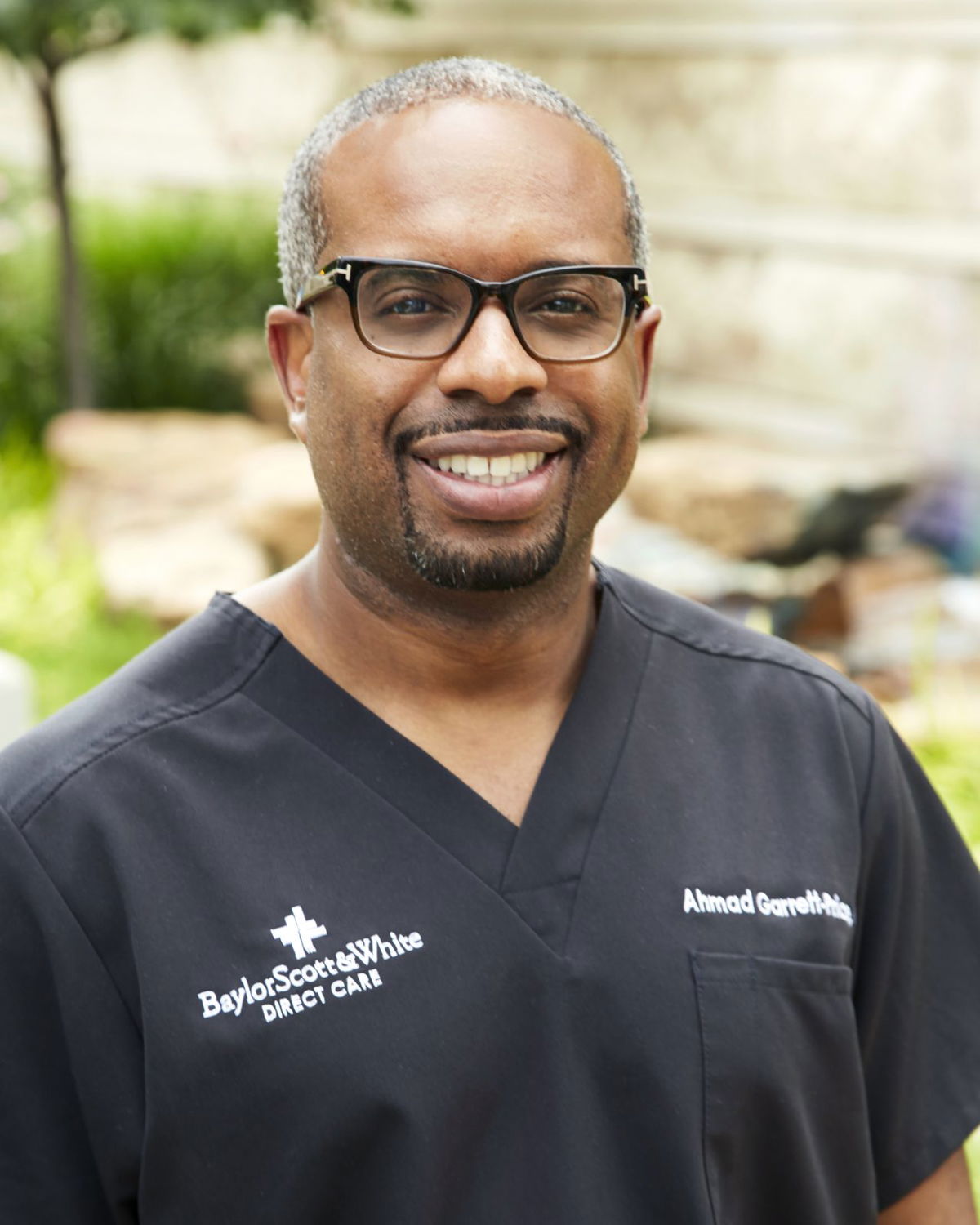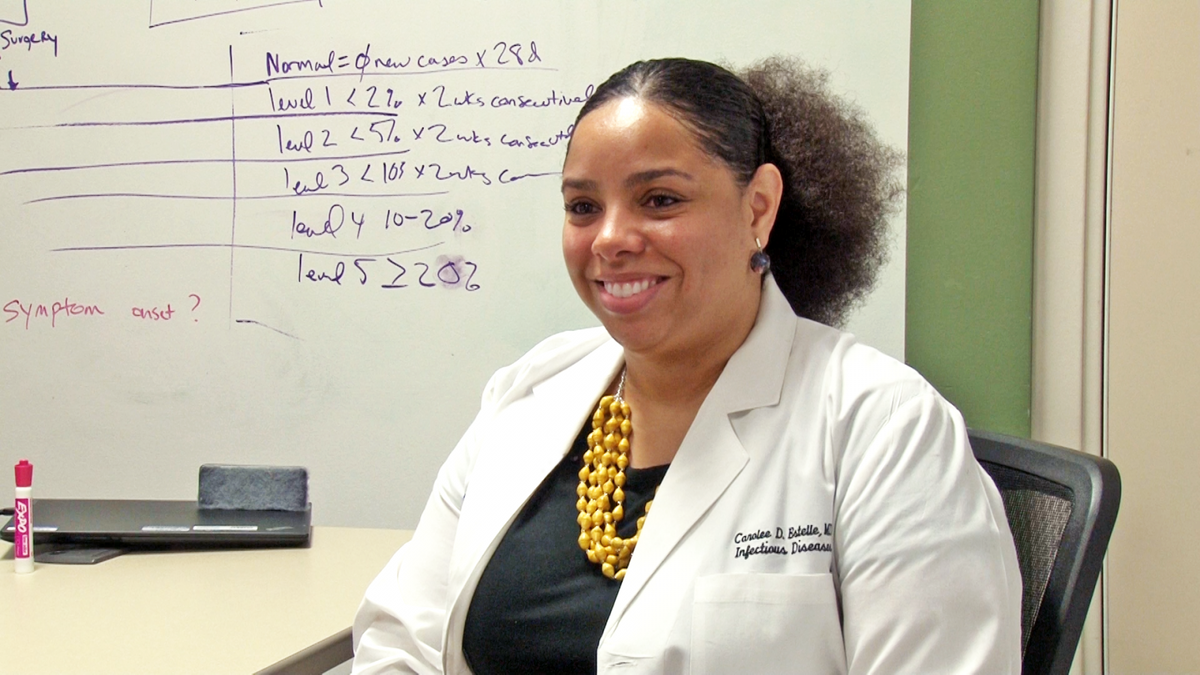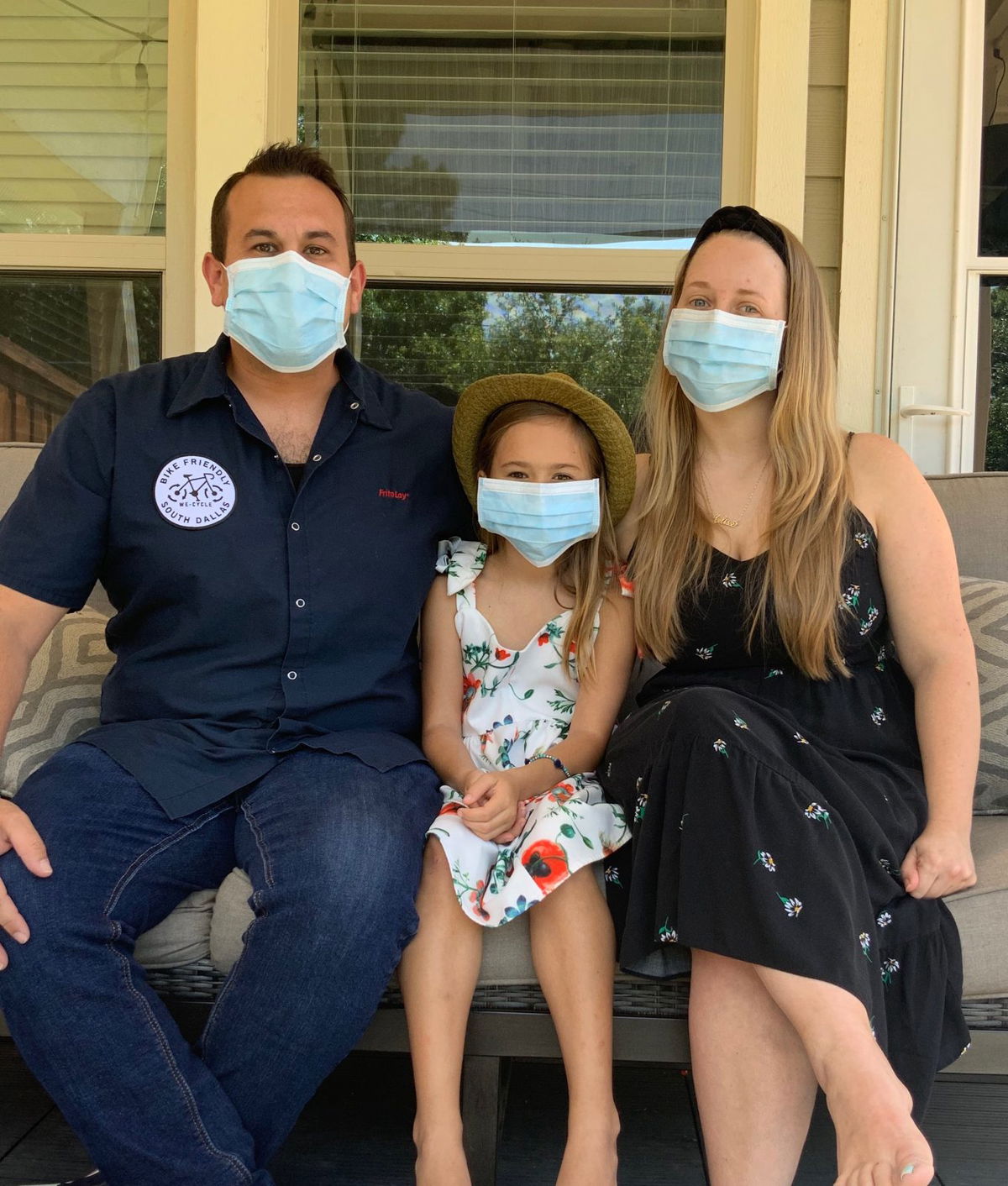Co-published by our media partner, The Dallas Weekly
When Dr. Ahmad Garrett-Price leaves his home in West Dallas, he always takes his self-made “care package” with him. It’s a recyclable grocery bag holding key items to protect himself and others from the novel coronavirus: a mask, disposable gloves, hand sanitizer, disinfectant wipers and disinfectant spray.
The fact that the State of Texas recently began reopening its economy isn’t altering his practice one bit.
“By no means is this over,” says Garrett-Price, a Baylor Scott & White family medicine doctor. “Truthfully, the numbers are continuing to grow.”
A DeSoto High School graduate, Garrett-Price watched as the novel coronavirus began to spread from China to other countries. “It was clear the disease had a favoritism,” he says: Death tolls were higher among people with heart disease, hypertension, diabetes and chronic pulmonary diseases.
“Who most likely has those diseases here in the United States? African Americans, Latinos,” Garrett-Price says. “COVID is just exposing something that is already there — health care disparities and lack of access.”
“You’ve seen the virus take a toll on certain communities,” he continues. “For those communities, stay even more vigilant. We just don’t know the prevalence in our community because we’re under-resourced for [testing], but we can assume that that number is higher than what we’re able to know.”

After the state reopened, Parkland Hospital and Health System experienced its highest number of new COVID-19 cases yet, says Dr. Carolee Estelle, Parkland’s interim chief of infection prevention.
Before going out, she encourages individuals and families to do a self-assessment before leaving the house by asking: “Is this activity really going to be of high value or high consequence and truly worth the risk of going out? Is it going to bring you peace or joy or something you really need right now?”
“Yes, the city is opening, and yes we’re allowed to go places, but I think that we still should try to limit it to when it’s really going to benefit us,” Estelle says. “We can be intentional in the way we go about doing those activities so we can still help protect ourselves and those we’re trying to help.”
When visiting a salon or a restaurant, make sure the establishing is following infection protocols, Estelle says. For example, her brother is a barber in a shop that gives old-fashioned blade barbs, and while you can’t wear a mask while getting a shave, “you can ask them to wear a mask while they’re in your face, and make sure they’re washing their hands,” she says.

Dallas District 7 Councilman Adam Bazaldua, who represents South Dallas, is skeptical of the state’s reopening measures.
“There’s a very big need for our public to continue to prioritize the advice from health professionals versus that of orders that are put out,” he says. “Data has shown us that we — all of the people in the county— have worked hard. The only reason we’ve flattened the curve is because of the measures we’ve taken.”
As for Bazaldua and his family, “we’re staying home. I am the only one that goes to the grocery store, and I have been going to City Hall one or two days a week, but I go at hours no one else is there, and I wear a mask anytime I leave the house.”
For Mother’s Day, Bazaldua’s family celebrated with a socially distanced picnic —his wife and daughter on a blanket on one side of their driveway, and his mother and stepfather sitting on the other side. Several neighborhood associations in his district have converted to virtual meetings, often with “more participation,” Bazaldua says. “Even the amount of people you see prop [their device] on the kitchen counter while they’re cooking dinner — I love that.”

It will be another week or so before officials know how the reopening has impacted the spread of COVID-19, but like Garrett-Price and Estelle, Bazaldua believes “it will potentially bring a whole other wave” and urges residents “to continue the compromises and sacrifices you’ve already made.”
He points to the scenarios Dallas ISD has laid out for returning to school in the fall, which include continuing at-home learning or creating a schedule for students to attend class in-person just two days a week. Neither of these options will serve working parents, Bazaldua says, and “we have the ability for that to not be our new normal.”
Civic leaders are making “very complicated, difficult decisions right now,” Estelle says, and “if this opening makes it so that our health system can’t take it, I believe — or at least, I hope — they will respond accordingly, and we will call on our community to go back into shelter in place.”
The most common question Estelle hears is: “Will we ever go back to normal?”
“I think the answer is yes, but it will be a new normal,” she says. “We are resilient people, and we will get back to doing what we love and being around the people that we love — we’ll just do it differently, more mindfully, intentionally and carefully.”
Tips to keep yourself and your loved ones protected
• Above all else, wear a mask in public, say both Estelle and Garrett-Price
• If you visit a business, choose low-volume times that are less crowded so you can remain physically distant from others, Garrett-Price says.
• While you’re out, don’t touch the mask or your face, Estelle says, and once you arrive home, wash your hands after taking off the mask and before touching your face.
• If you’ve been in a public place, decontaminate when you come home by putting your clothes in the washing machine, taking a shower and doing a nasal rinse prior to moving around the rest of your home, Garrett-Price says.
• If you enter a restaurant or business and feel uncomfortable — if employees aren’t wearing masks, gloves or practicing physical distance — you can always leave, Estelle says.
• When using public transportation, wear a mask, use disinfectant wipes to clean surfaces, and put on disposable gloves before boarding that can be thrown away once you exit, Garrett-Price says. If you use a ride share service like Uber, request that your driver wear a mask, he says, and use hand sanitizer before and after your ride.
• Estelle advises against taking children to playgrounds, but if you need to, go when other children aren’t present and make sure to use hand sanitizer before and after. Keep playgroups small, make sure the children’s other family members don’t have COVID-19, and give children masks to wear.
• Put together a care package like Garrett-Price’s with cloth and disposable masks, hand sanitizer, disinfectant wipes, disposable gloves and disinfectant spray. Take it with you when you leave the house and keep it within arm’s reach while traveling from place to place.
• Take into account whether you or anyone who lives with you is considered high-risk, Estelle says, and weigh the risks versus benefits before visiting any public space.
• Though there is no treatment or cure for COVID-19, you can keep your immune system in shape with regular exercise that increases your heart rate and eating green leafy vegetables, citrus fruits, nuts, berries, fish, whole grains, garlic and other foods rich in vitamins A, C and E, Garrett-Price says.

Leave a Reply